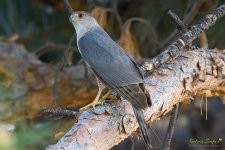-
Welcome to BirdForum, the internet's largest birding community with thousands of members from all over the world. The forums are dedicated to wild birds, birding, binoculars and equipment and all that goes with it.
Please register for an account to take part in the discussions in the forum, post your pictures in the gallery and more.
Very Pale Cooper's Hawk?? (Green Valley, AZ) (1 Viewer)
- Thread starter JohnKoerner007
- Start date







